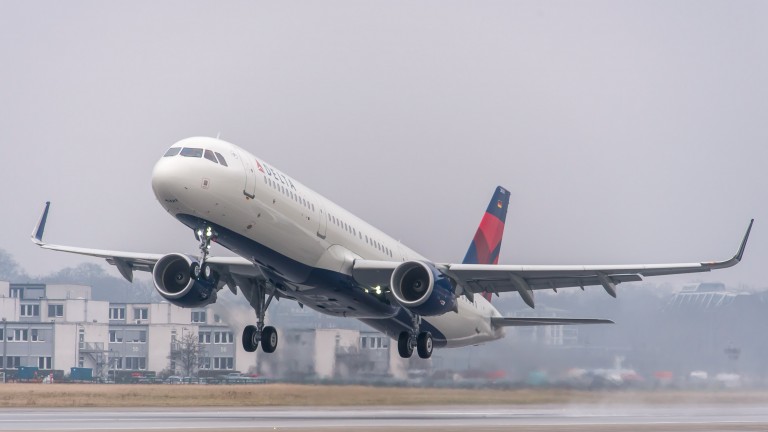Delta announced plans to become the first major airline to go carbon neutral globally, pledging on Friday to offset the greenhouse gas emissions from all its flights and operations from March onward.
Big picture: It’s the latest in a rush of companies trumpeting plans to cut or balance out their climate pollution; the list includes Microsoft and BP. Similarly, Jet Blue announced plans to go carbon neutral for US flights last month.
But it’s going to be expensive and very difficult for businesses to reliably cancel out their emissions using the sorts of machines and natural systems envisioned.
(The wording in Delta's press release seems to leave room for the possibility that the company will eventually, rather than immediately, balance out the emissions from its operations from next month forward.)
The details: Delta said it will spend $1 billion over the next decade for carbon reduction and removal efforts. That will include developing or using lower-carbon jet fuels, and shifting to more efficient planes or flight operations.
To offset the rest of its emissions, the company will explore a variety of forestry, wetlands, grasslands or soil projects and practices to draw down and store more carbon. Some of the $1 billion will also go toward a dedicated fund that will invest in technologies that can remove carbon dioxide from the air.
Challenges: Startups like Carbon Engineering and Climeworks are already building so called direct-air capture machines that do this, but it’s an extremely expensive process today. Meanwhile, there are a litany of challenges associated with relying on trees for carbon removal. Some researchers are dubious about the potential for storing carbon in soil as well.
These challenges only multiply as more and more companies and nations pin their hopes on the same sets of solutions. A lot of companies and a lot of countries are suddenly counting on planting a whole lot of trees.

